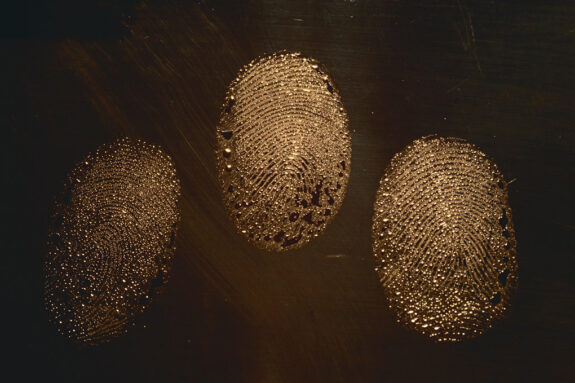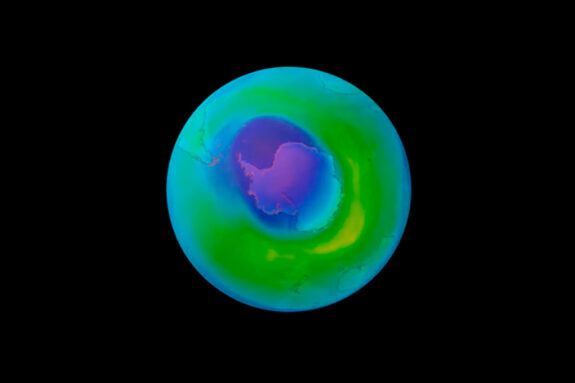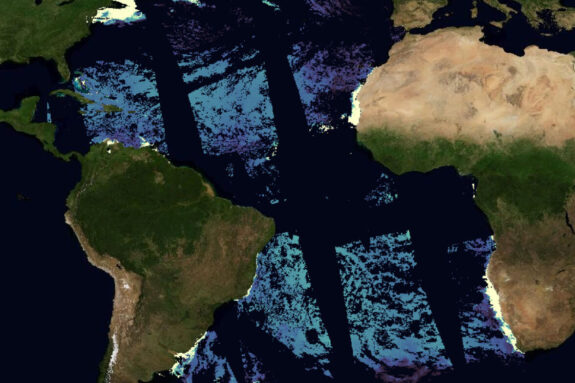Chalkboards, beakers, and cookies: A memory of Frank Dudas

Frank Dudas worked as the Laboratory Manager for the Bowring Isotope Geochemistry and Geochronology Lab in EAPS for 14 years. He passed away in 2014.
Frank Dudas worked as the Laboratory Manager for the Bowring Isotope Geochemistry and Geochronology Lab in the Department of Earth, Atmospheric, and Planetary Sciences (EAPS) for 14 years until he retired in 2014. He was the winner of the Unsung Hero Award in 2013, where his nominator wrote, “Unsung Hero is a perfect description of Frank who quietly performs incredibly important functions that benefit not only everyone in my lab, but also the department, the MIT community, and a host of international visitors”. He passed away in 2022.
Sarah Sinnett, ’08 in chemistry, worked with Dudas in the summer of 2005. Currently an Assistant Professor in UT Southwestern Medical Center’s Department of Pediatrics, her brief encounter with EAPS and Dudas left a lasting impression and shapes how she approaches her own leadership style.
A bucket of water was the sole reason I met Frank in 2005. During my first year at MIT, I worked part-time as a chalkboard washer. Every other day, I arrived early to class with a bucket and sponge to clean the boards before the chemistry professor arrived. It was not a glamorous job, but I was grateful for the opportunity.
By the end of the school year, I was ready for a real science job. At the advice of a student, I cold emailed a list of professors in the Department of Earth, Atmospheric, and Planetary Sciences. Soon after, Dr. Sam Bowring invited me for my first job interview. I was not qualified. I made good grades, but I knew at the time that I was metaphorically born yesterday. As the interview drew to a close, I asked Sam to keep a copy of my resume just in case. As soon as he saw the title “chalkboard washer” at the top, the mood in the office brightened. According to Sam, if a student was willing to wash chalkboards, then that student probably understood the value of a dollar. That was the kind of student he wanted to hire. He told me to finish final exams, visit my mom over break, and quickly return.
Roughly two weeks later, I returned to Sam’s lab wearing the best Gap clothes I could afford. That’s when he introduced me to Frank. My image of Frank will always be of him wearing khaki slacks and short-sleeved button-ups. He was exceedingly tidy, had a genuine smile, and focused his conversations on science, with occasional exceptions for cookies, pinochle, and his wife, Rigel.
My primary tasks under Frank’s supervision were to run ion exchange columns and wash beakers. The beaker washing was far from trivial. The most hazardous step in the process involved hot hydrofluoric acid (HF), but we were always safe! Frank’s signature was evident throughout the lab space. There was a place for everything, and everything was in its place. He color-coded reagent labels: blue for water; red for HF; yellow, orange, or green for other acids. We refilled small bottles from medium bottles. We refilled medium bottles from large bottles. Once the large bottles were empty, he joked that we were supposed to steal from other labs. I appreciated his humor. Labels were neat, and so was his notebook. His lab hygiene was impeccable. We never passed our hands over open beakers in the hood. Step by step, the hours passed until 3 p.m. Then people throughout our building paused to meet on the middle floor for cookies and hot chocolate. Sometimes, I snuck away to the Earth science library to eat cookies and read the newspaper. To my delight, there was never a soul around.
Summer 2005 inched by slowly. I worked, ate dinner, and fell asleep to Ethan Hawke movies on my laptop. Each morning I returned to the lab to work with Frank in peaceful solidarity… and then we ate cookies.
Our appreciation for our mentors grows in hindsight. We move onto new jobs and find ourselves turning into our former bosses, just as I find myself turning into my mom as my gray hair sets in. As the years passed, I recognized how Frank established a healthy foundation for work. A place for everything and everything in its place. A time for everything and everything happening at its intended time. A life of care and focus. No conflict. No distractions. Just science, rest, repeat. He treated me with respect. I’ve worked in many labs since 2005, and when circumstances in life feel amiss, I ask, “What would Frank do? What would Frank say?” The foundation Frank gave me helped me appreciate the good times more.
Life feels very different now. It feels loud and fast. The stakes are high, and my thoughts often return to Frank. When work is turbulent, I find myself asking if I have a place for everything with everything in its place; a time for everything with everything happening at the intended time; a ritual to restore me. This year, I began a weekly teatime for my lab. Every Tuesday morning, I sit by a painting outside the cafeteria and work on anything that brings me joy. My employees stop by and tell me about their children and traditions. They can talk about science if they wish, but there’s no pressure. I give them my full attention.
Once during the summer of 2005, I crossed paths with Frank’s first wife, Rigel. Eighteen years later, the memory is so fuzzy… It was sunny outside…! I remember her smiling and saying that Frank called me a Godsend. I think I stammered a thank you. I remember feeling too tongue-tied to say much else. I was not used to that kind of praise. If I could go back in time, I would have told Rigel that Frank was a Godsend, too.
Years slip away, but our mentors stay with us in one way or another. Thank you for remembering Frank with me.


